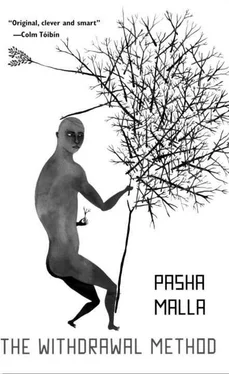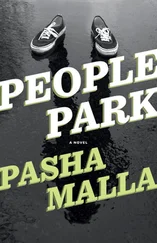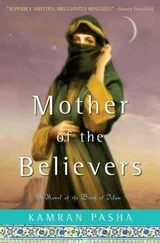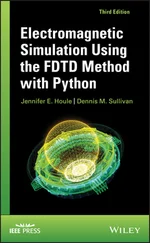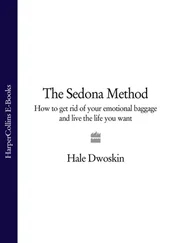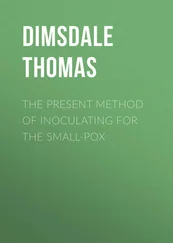Something twitches inside me, and I have to grab the railing to steady myself. I inhale, closing my eyes, and count five seconds while my breath drains into the autumn dusk. When I open my eyes the squirrel has disappeared. The neighbourhood is silent, washed in dusty twilight. I let go of the railing and step down, one stair, then the next, and begin the walk home.
TIMBER ON THE WHEEL OF EVERYONE
AFTER HE EMERGED from the coma, when Timber explained to Janet his revelation that he and Lance Armstrong were polar opposites on the spectrum of humanity, he would pinpoint its genesis in a single moment: the front wheel of his bicycle smacking into the driver-side door of the navy blue coupe.
This had happened at the bottom of what Timber's son Neil and Neil's big weird friend from England, Rick, called Frog Hill. (Rick with the chapped lips that spread in a red clown mouth of flaking skin onto his face and who carried a cellphone, always; Frog Hill because in those sunny summer days post-chemo and pre-magpies Neil and Rick had found a frog in the woods and Rick had bullied Neil into launching it into the path of an oncoming truck, which had flattened the frog into a creamy green paste. Neil had come home for dinner and it had been two bites of spaghetti, a pause, a wave of guilt, and then vomit, everywhere, spraying and splashing like a fire hydrant in a film about Harlem.)
It went like this: Timber had been coasting down Frog Hill, all easy speed and carefree, no brakes, thinking of the successes of Operation Stoplight, thinking of Janet, whom he had not yet met but was sure he loved, thinking of The Neil Kentridge X–Canada Tour for the Cure (the X denoting the word cross and nothing licentious) and thinking of these three very good things Timber spun his pedals backwards so something down there made that whizzing noise he enjoyed so much, and the pavement of Frog Hill zoomed by smooth and grey-black below, and gravity pulled him down, down, now at the bottom and the road starting to even out, flattening, and the sky above was a blue sheet slung arcing across the heavens — but then, wham! Here was a car door! With a crunch of metal the bike crumpled and so did he.
Timber lay panting, nuzzling the curb, no pain yet, vaguely aware that he was not dead. He could see the blurry shape of a head leaning gawking from the passenger-side window; equally blurry, the driver faltered half in and half out of her car. At that moment Timber's thoughts of Neil and Janet, of Operation Stoplight and X–Canada anything, and even his own life, still intact, were shattered by the image of Lance Armstrong, arms aloft as he crossed another finish line, champion, on the box of cereal that Neil enjoyed every morning.
When Timber thought of Lance Armstrong, Timber thought Hero. And when he considered himself, lying in the gutter, in relation to this Hero who had beaten cancer and won seven consecutive Tours de France, he thought Zero. He thought Fuck.
And then that final epiphany, materializing horrid and red like blood from a wound — like the blood that was now oozing through the torn knees of Timber's trousers, through the torn elbows of his shirt. All of humankind, Timber realized, existed on a spectrum, a wheel such as the one used to desig nate colours with opposites on either side: blue here and orange there, purple and yellow, red and green.
Here on the wheel was Mother Teresa, habit-clad and smiling and sickly thin and Good, and directly across from her sat a bristling, grumpy Hitler, Evil. And here was Evel Knievel and there was, what's his name, Super Dan? Mike? That guy, the one who always hurt himself: him. The Ex-Wife versus Janet. And on one side of the spectrum Timber saw Lance Armstrong, Hero, symbol of the triumph of the human spirit. And across from Lance Armstrong on this wheel, the Wheel of Everyone, Timber saw himself.
THAT MORNING, Timber had tried to ensure a normal routine. He and Neil sat at the kitchen table in Timber's rented duplex as they always did when Neil was in his father's custody. Timber slurped his chicory coffee substitute and grapefruit; Neil slurped his Tang and Lance Armstrong cereal drowned in 2 %. It was Speech Day, and through breakfast Timber prompted Neil on his speech, which ended with the line, And that's why Lance Armstrong is my hero.
After only four run-throughs, Neil had it down. Timber reached across the table to proudly tousle his son's hair. It had grown back different after the chemo, curly and dark and fun to tousle — although Neil ducked away from his father's hand and chided him, Da-ad. Then Timber helped Neil don his icecream tub helmet for the wait outside for the school bus. Since starting the fifth grade, Neil preferred to do this alone: fine. Timber wanted to believe in the old adage about letting the loved bird out of the cage, free, or whatever, however it went, and so instead of joining his son at the foot of the driveway, Timber watched from the den window.
In the trees the magpies were collecting, all glinting black eyes and fluttering wings. Neil stood below, oblivious — but safe in his ice-cream tub helmet, hopefully. The next day Neil had a track meet that Timber would miss, even though every weekend he had helped his son practise at the park: fetching and rolling back the softball, timing his laps around the soccer field, measuring his long jump in the sandbox, coaching and cheering him on through each event. But Timber recalled yelling, Batter up! when Neil had stepped to the start line for his 8o-metre dash, and then realizing, Aw crap, he didn't know from sports, who was he kidding? And the way Neil faltered there at the other end of the field, he was likely thinking the same thing.
Watching his son wait for the bus, Timber tried to focus on The Neil Kentridge X–Canada Tour for the Cure, proof he could just Do It as well as anyone. But then from nowhere, like a waft of sudden flatulence, the term custody agreement was upon him, and this conjured The Ex-Wife and The Ex-Wife's lawyer-slash-lover, Mr. Barry Parker, who together seemed negligent, did not appreciate the dangers facing young boys in town, especially young boys in remission — the magpies, for one, and also having reckless, cellphone-toting friends like British Rick. Who could a ten-year-old possibly need to call? But then the school bus arrived growling and took Neil away. It was time for Timber to head to work.
Timber's bicycle was the sort he imagined peasants riding in China: handlebars like the bow legs of a geriatric cowboy, horn wheezing with the tobacco-ravaged voice of the same cowboy's wife, three gears that sent the chain fumbling and clattering around each time they were adjusted, and a seat mounted on rusty springs that absorbed neither the shock from the road nor the weight of its cargo, Timber.
As he made his way down the driveway and out into the streets of the town, Timber thought proudly about how he was a cyclist, a word that to him conveyed something classy and nineteenth century and southern. Those other racy types who hogged the road in shorts of Lycra, aerodynamic helmets, gloves, pointed shoes clipped into pedals the size of tic tats, Timber called bikers. The bikers' bikes were named Cliffjumper or Roadzilla and boasted hundreds of gears that slid digitally from one to the next. Instead of wheezy horns the bikers' bells chimed clear and true as ringtones; their seats were padded gel.
Mr. Barry Parker was a biker — a biker and a divorce lawyer and bonking The Ex-Wife. He had also replaced Neil's humble two-wheeler with a gleaming new twenty-one-speed featuring front and rear RockShox. Neil didn't even like mountain biking, Parker — what an idiot. But just as Timber thought this, in the pale light of the day's first sunshine as he emerged from his subdivision onto the major road through town, Barry Parker himself went rocketing by. Timber ducked his head.
Читать дальше
